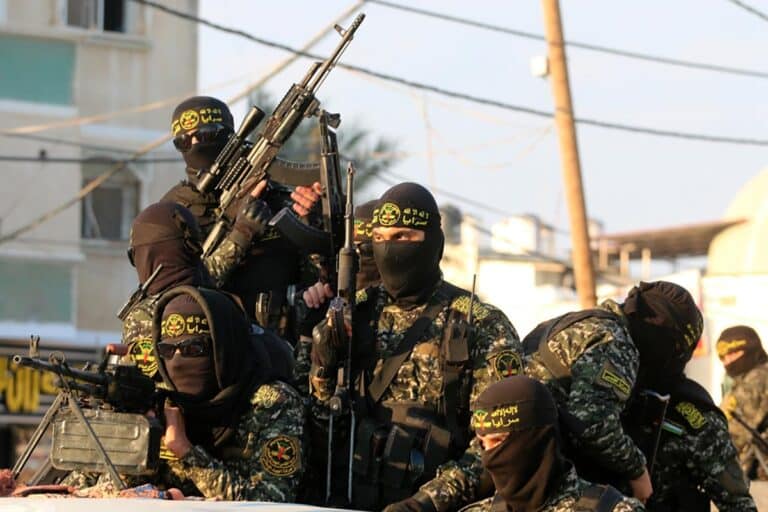
Palestinian Islamic Jihad (PIJ) is a Palestinian terror group based in the Gaza Strip and West Bank. It is the second most powerful militia in Gaza after Hamas.
Unlike Hamas, which has a political division in addition to an armed militia, PIJ has never formally joined political institutions or participated in elections, instead focusing entirely on terror activities.
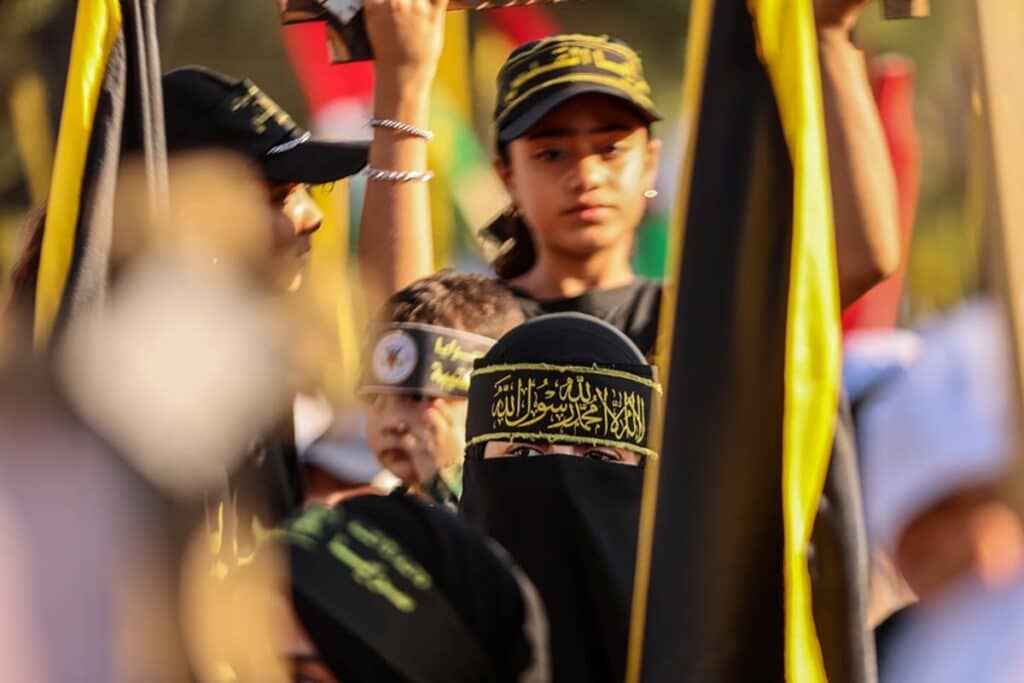
Founded in 1979 by two former members of the Muslim Brotherhood, PIJ launched its first attacks against Israeli military and civilian targets in the late 1980s.
Since then, the group has carried out numerous suicide bombings and other violent attacks, and has launched a significant number of rockets into Israel. Let’s unpack the group’s ideology, history, and role in the current Israel-Hamas war.
The ideology of Palestinian Islamic Jihad
Founded in 1979 by Muslim Brotherhood members Fathi Shaqaqi and Shaykh Abd al Aziz Awda, PIJ emerged as a radical offshoot of the Brotherhood, propelled by the fervor of the Iranian Revolution.
A fundamentalist Islamist organization, PIJ rejects the Oslo Accords and a two-state solution, seeking the destruction of Israel and the establishment of a Palestinian state.
The group advocates for the use of violence against Israelis as a means of “resistance” and achieving these objectives.
Historically, PIJ’s financial support has come primarily from Syria and Hezbollah. However, since 2014, Iran has become a significant backer, bolstering PIJ’s capabilities and influence.
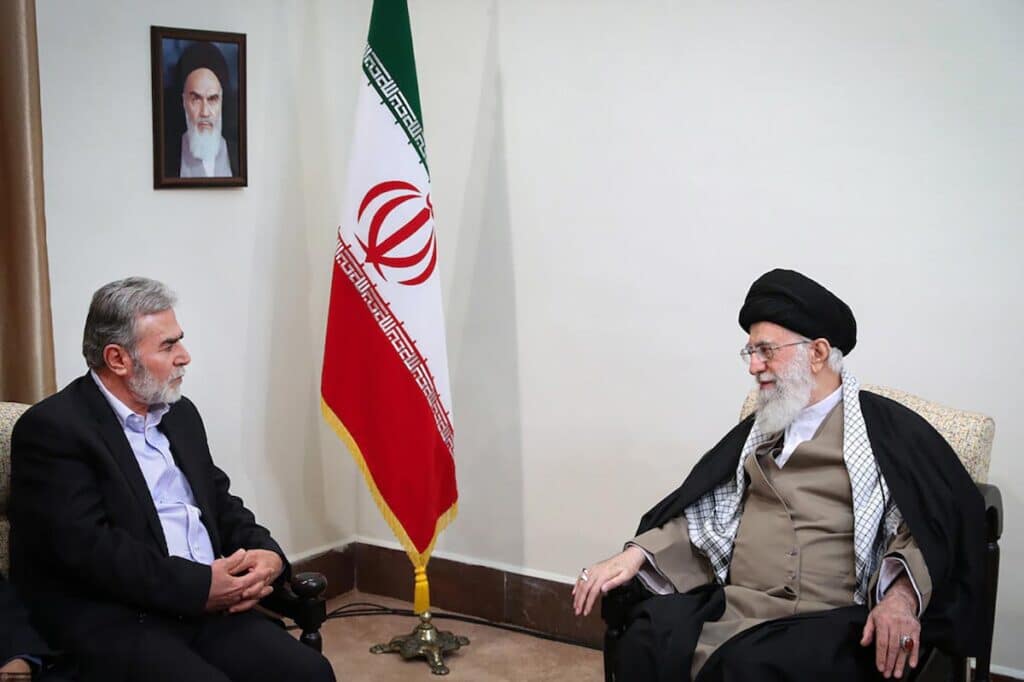
The organization’s military wing, Al-Quds Brigades, formed in 1981, is primarily based in the Gaza Strip but is also active in the West Bank with strongholds in Hebron and Jenin.
Due to its activities, PIJ has been designated a terrorist organization by several countries and entities, including the United States, the European Union, the United Kingdom, Canada, Australia, New Zealand and Israel.
PIJ is currently led by Ziyad al-Nakhalah, who has been classified as a Specially Designated Global Terrorist by the U.S. since 2014.
The history of Palestinian Islamic Jihad
PIJ’s roots trace back to the Muslim Brotherhood, established by Hassan al-Banna in Egypt in 1928. Originally focused on Islamic education and social welfare, the Brotherhood evolved into a significant political force in Egypt, particularly after the Six-Day War in 1967.
While peaceful at first, the Brotherhood escalated to political violence in the 1940s, bombing buildings and assassinating Arab leaders.
By the late 1970s, the Islamic Revolution in Iran, led by Ayatollah Khomeini, profoundly influenced the Muslim world. This revolution, which overthrew the Shah of Iran and established a theocratic state under Shiite Islamic rule, inspired radical Islamist movements across the region.
The Iranian Revolution’s success in establishing an Islamic state galvanized groups like PIJ, leading them towards more radical ideologies and methods.
Inspired by the revolution’s Shiite Islamist ideology, Shaqaqi and Awda, PIJ’s founders, diverged from the predominantly Sunni Muslim Brotherhood. They believed that Palestinian liberation could only be achieved through violent means, mirroring the Iranian Revolution’s approach.
After its formation, PIJ quickly became involved in violent activities within Egypt and against Israelis. The Egyptian government expelled PIJ members to the Gaza Strip after they were linked to the assassination of President Anwar Sadat in 1981.
Despite this expulsion, PIJ remained active in Egypt, attacking a tour bus in February 1990, killing 11 people, including nine Israelis.
PIJ’s first attacks occurred in the late 1980s. Notable incidents include the July 1989 attack on the Egged 405 bus between Jerusalem and Tel Aviv, resulting in 14 casualties, and the Megiddo Junction attack in June 2002, which killed 18 people.
PIJ and Hamas, after initially being rivals, joined forces post the creation of the Palestinian Authority in 1994, launching attacks against Israeli targets in an effort to halt the Oslo peace process. Their partnership intensified, notably in the Beit-Lid attacks in 1995, killing eight Israelis and wounding 50.
PIJ’s activities continued in the ensuing years, often in conjunction with Hamas. In May 2021, PIJ fired over 1,000 rockets into Israel, in addition to the thousands of rockets launched by Hamas. Israel targeted Hamas and PIJ terrorists and infrastructure in response.
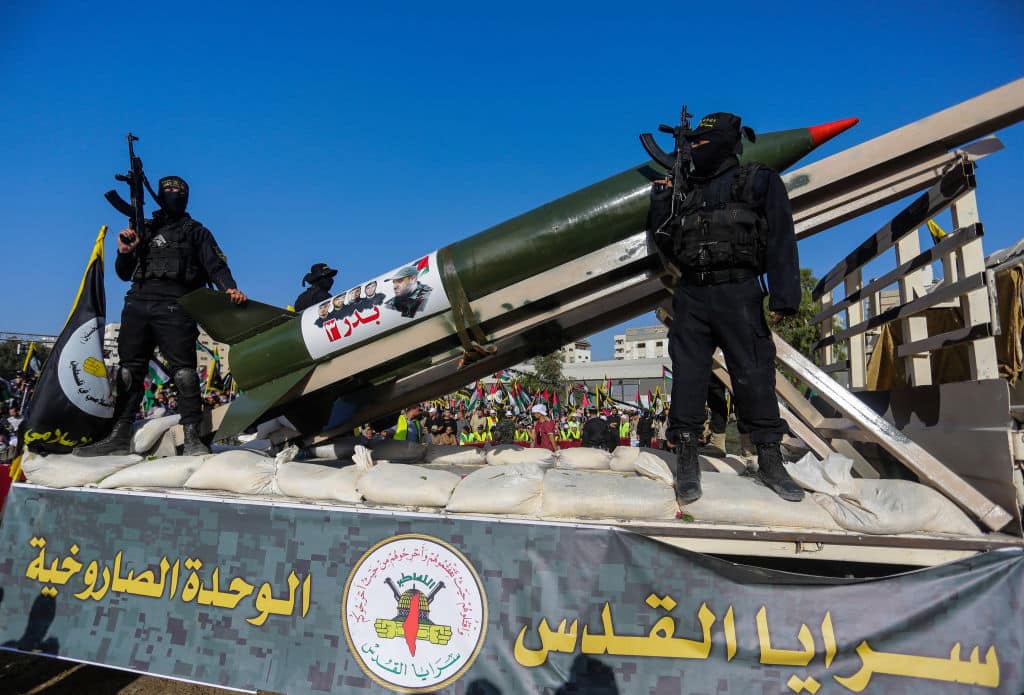
In August 2022, PIJ again launched over 1,000 rockets at Israeli territory from Gaza, leading to a brief war with Israel. The group’s acts over the decades have cemented PIJ’s reputation as a terror organization and have led to its designation as such by several countries.
What is PIJ’s role in the current war with Hamas?
Palestinian Islamic Jihad participated in the brutal attacks against Israel on Oct. 7, including perpetrating acts of sexual violence against women. The group claims it is holding 30 Israelis hostages out of the 240 that were taken into Gaza on Oct. 7.
On October 17, an explosion took place at Al-Ahli Arab Hospital in Gaza City, killing over 100 people and injuring hundreds. The IDF produced evidence that the cause of the explosion was a Palestinian Islamic Jihad rocket misfiring. The U.S., France, the U.K. and Canada backed this claim. Hamas and PIJ stated stated the explosion was caused by an Israeli airstrike.
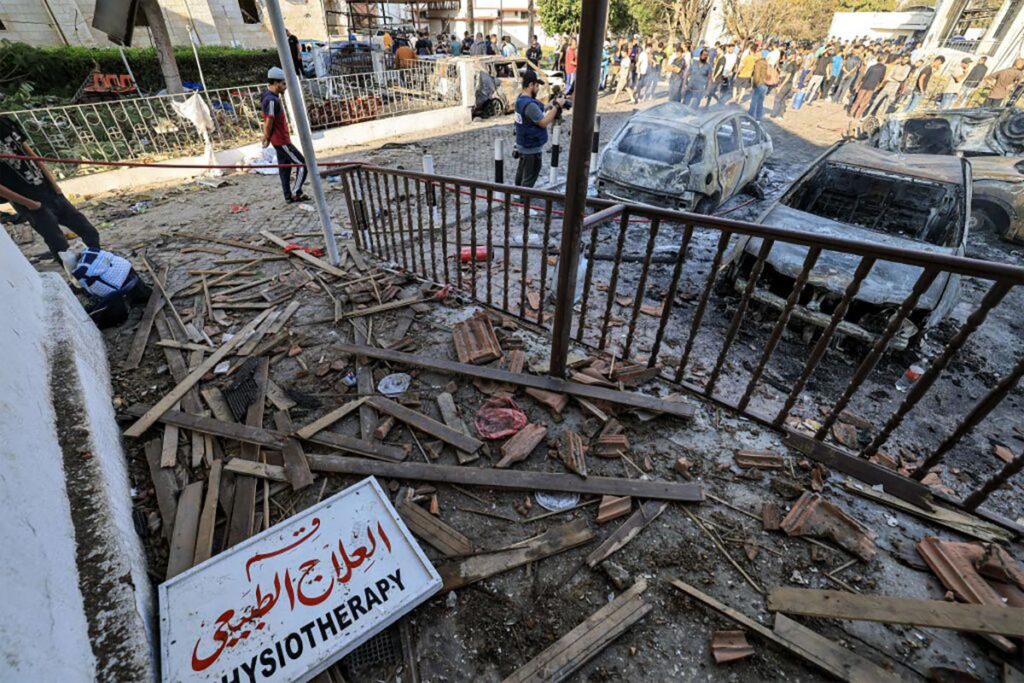
Many news outlets were quick to publish Hamas’s claims blaming Israel for the attack. On October 19, U.S. State Department spokesman Matt Miller criticized this coverage, saying:
“This event was a reminder that…it would be wise for all of us to take a beat and pause and collect all the information before choosing to decide what we believe and what we don’t.”
“I saw a number of reports… that took Hamas’s word at face value — the word of a terrorist organization,” Miller added.
The failed rocket launch on October 17 wasn’t the first of its kind. In the group’s attacks against Israel in August 2022, 20% of PIJ rockets fell short in Gaza, resulting in at least 14 Palestinian deaths, according to the IDF.
The IDF is targeting both Hamas and PIJ terrorists and infrastructure in the current war in Gaza.


